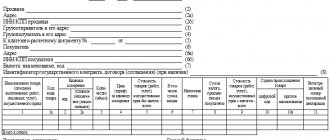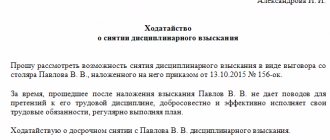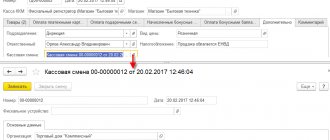For what purposes can an individual entrepreneur withdraw money from a current account?
When receiving money from an account, it is very important for an individual entrepreneur to cash it out legally in order to avoid blocking.
An individual entrepreneur can manage money in a current account for personal purposes, therefore, there is no need to report why the withdrawal is made. All funds in the individual entrepreneur’s account are the account owner’s own money. Only 2 points are important:
- Your activities must be legal and your cash withdrawal transactions must not be superior to others. What can be paid by card, pay with a corporate card. Payments to the budget must also be made through an invoice. Thus, the bank and the state. authorities there will be no suspicion.
- Do not exceed the available bank limits on your tariff. For example, if your bank has a certain amount available for interest-free cash withdrawals from your card, do not exceed it. It is better to use the service of transferring funds to your personal physical card. the person from whom you have already withdrawn money from an ATM. But do not forget about the presence of limits on such transfers and try not to exceed them.
Conclusion: if you often need cash, then choose a bank and tariff with high interest-free limits, and try to use the account for a variety of transactions.
Features of opening an account
In relation to individual entrepreneurs, there are not many restrictions imposed on organizations. The obligation to open a current account applies only to legal entities engaged in commercial activities.
The individual entrepreneur only has the right, there is no obligation to do this
. It will be useful for regular settlements with counterparties by non-cash transfers. The threshold for transfers is also defined by law - 100 thousand within the framework of one agreement.
Accounts are used in current activities, namely:
- Settlements with partners.
- Payment of wages to employees.
- Payment of taxes, contributions to the Pension Fund and Social Insurance Fund.
It is not used for personal purposes; it is not advisable to make personal purchases or transfer money to it specifically for this purpose.
All movements will be taken into account when calculating taxes and other mandatory payments.
- Banks themselves try to distinguish between clients’ money. A bank client who evades taxes or conducts dubious transactions creates problems for the credit institution itself.
- Banks often prescribe special provisions in agreements with clients, and there are frequent cases of refusal to service persons who violate the rules for using the account. Accounts are frozen, an audit is carried out, the client receives his money, but further service will most likely be impossible.
- Conducting business according to the rules not only eliminates problems, but also encourages the bank to offer loans on more favorable terms.
It is no secret that servicing a bank account costs money. At the same time, its presence helps to avoid filling out numerous documents, errors in which lead to fines from government agencies. By the way, amounts spent on banking services are not taxed.
Each bank has its own pricing policy, it is not a fact that well-known institutions provide better service than others, but you have to pay an order of magnitude more for their services compared to average organizations. It is also undesirable to hastily agree to service only because of low prices; you should first find out about the bank’s reputation.
On average, servicing costs from 700 rubles per month, in some banks – from 2000 rubles.
The procedure for opening an account is simple, a small list of documents is provided, the whole process takes about an hour or even less:
- Passport.
- Certificate of registration as an entrepreneur.
- Certificate of registration (also issued by the tax service).
- Card with signature samples and passport details.
- Patent, license, other permitting document.
When a third party is expected to withdraw money from the account, a notarized power of attorney is added.
How can an individual entrepreneur withdraw money from a current account for personal needs?
Below are options on how to legally withdraw money from your checking account for personal use:
- Cash at the branch cash desk using a checkbook or payment order (rarely used).
- Via physical card persons by transferring to it from a current account and subsequent withdrawal through an ATM.
- Withdrawal using a business card linked to the account.
- By transferring money to a replenished deposit of an individual. persons and withdrawal of funds at the end of the deposit (does not make sense, since it is easier to use point 1).
Withdrawing money from an individual entrepreneur's current account to an individual's card. faces
This is the most popular and easiest withdrawal option. When using it, you need to follow several important rules. Firstly, correctly indicate the purpose of the payment - “Transfer of personal funds” or “Withdrawal of profit from business activities”. The bank may not execute the payment if the phrase “Payment of wages” is present, because the individual entrepreneur cannot pay his own wages. Secondly, the transfer must be made to a personal card (i.e., not to the card of a spouse, mother, father, etc.).
Withdrawing cash from a corporate individual entrepreneur card
This option is one of the most expensive ways to withdraw cash. The card is issued directly to the account, so there is no need to carry out additional transfer steps.
The main disadvantage is small limits on interest-free withdrawals and large commissions if the limit is exceeded. However, this is a fast and convenient option for receiving funds.
Don't forget that you can pay with this card in stores or when purchasing something. Many even stop using their personal debit card and switch to a corporate one.
Receiving cash at the cash desk
Withdrawals are possible without a card. To do this, you need to get a checkbook and pay it according to bank rates. Commissions for withdrawals from an individual entrepreneur's account at the branch are lower. In addition, this option is the most attractive and safe when withdrawing large amounts. But it's inconvenient.
Transfer to the deposit of individuals. faces
It is possible to use this option provided that the deposit belongs to an individual entrepreneur and is replenished. Withdrawals will only be available after the deposit ends. But not all banks provide this opportunity.
We recommend reading: Rating of banks by cash settlement services for individual entrepreneurs and legal entities with customer reviews.
ATTENTION!!!
If
Individual Entrepreneur USNO 6% works
WITHOUT CASH
(that is, it does not deal with cash at all - only through a current account, and does not break the law!), then
in NO EVENT should withdraw money from his current account directly - at the bank!
Otherwise, the bank will send a “letter of happiness”, demanding to report on the cash register, which you do not have. Read about the torment our colleague experienced without knowing it in the post and comments to it (and by the time I am writing this addition, there are already 50 of them!!!). I was looking into a colleague’s situation, not knowing that he was withdrawing money directly from his current account. And only at the end of the discussion it turned out that it turned out that he did just that. And in this case, the bank believes that the individual entrepreneur deals with cash, and, therefore, he must have a cash desk and all the reporting consequences ensuing from this.
So, in order not to have additional difficult problems with the bank, individual entrepreneurs working by bank transfer must withdraw by bank transfer - that is, WITHDRAW TO PLASTIC!
And if you nevertheless received from the bank a requirement to report on a cash register that you do not have, this means only one thing - YOU DIDN’T KNOW THAT YOU CAN’T DO THIS, and no one is obliged to explain this to you! “By default,” it is believed that a person, organizing an individual entrepreneur, knows everything that he is supposed to know for normal and law-abiding functioning. Well, really, we are adults, after all... And then, the bank has its own wedding, and the individual entrepreneur has his own. The bank, roughly speaking, “doesn’t care” about what you have and what you simply cannot have - it has its own reports. If you withdraw money in cash directly from your account - report to the cash register!
Some entrepreneurs do not like to be paid by bank transfer.
It seems that the money in the current account is no longer entirely yours: the tax office sees it, and you have to pay taxes on it. We need to clarify here.
Natalia Chelovan
Is it possible for an individual entrepreneur not to open a current account?
Yes! An individual entrepreneur can legally exist without a current account. Clients will pay in cash, and the entrepreneur will pay taxes and fees in cash through an operator at the bank. The payment form can be filled out on the tax website. Another option is to pay from the individual entrepreneur’s personal account.
For cash settlements with legal entities (LLC or JSC) or other individual entrepreneurs, there is a limit of 100 thousand rubles per agreement. If your contract is more expensive, by law you need to pay by bank transfer.
The cunning scheme “We’ll make several contracts for 100 thousand each” will not work: the Federal Tax Service monitors chains of contracts that have the same counterparties, amounts and items. For a “chain” a fine of 40 to 50 thousand rubles for an organization and 4-5 thousand rubles for officials (this also applies to individual entrepreneurs) can come.
If you receive cash from individuals, there is a chance that you will have to use a cash register - either now, or from the summer of 2020, or maybe from the summer of 2020. To accurately determine whether this is necessary or not, talk to a good accountant and do not trust information on the Internet.
For some types of services there are approved forms of strict reporting forms - for example, if you provide tourism or veterinary services.
Can I use my bank card for an individual entrepreneur?
Theoretically it is possible, in practice it is not.
The Tax Code does not directly prohibit the use of personal cards for individual entrepreneurs. But there are reservations in the instructions of the Central Bank and in the conditions of banking services.
Of course, you can take risks: for example, agree that the client transfers to your card without indicating that you are an individual entrepreneur. But in this case, there is every chance of paying personal income tax at a rate of 13% instead of the simplified tax system at a rate of 6% - if your client is an individual. If the client is a legal entity, then he can automatically be considered your tax agent and forced to pay 13% for you.
Buy our bills
We take this opportunity to recommend a current account with Tinkoff Business. Everything is cool with us: long payment days, a card is immediately linked to the account, convenient online banking, built-in cloud accounting, we immediately issue you an electronic digital signature, you can send reports to the tax office through us. You can issue invoices to clients directly on your phone.
We will bring all the documents, you don’t need to go anywhere. It will take 2-3 days for the paperwork and checks, but we will reserve the account immediately. Managers will help you with everything.
We are a convenient, but not the cheapest bank. Of course, you will find it cheaper than ours. It’s hardly more convenient than ours.
I heard that if money from a client comes to the account of a legal entity, it is difficult to get it out of there. This is true?
If we talk about the account of a legal entity (JSC, LLC), then yes, it is a bit complicated. We will write a separate article about them soon. If we are talking about an individual entrepreneur’s account, then, on the contrary, it is very easy to use money. Few people know about this.
The money in the individual entrepreneur's account is your property. And if you are married, then your property is joint with your spouse. You can spend this money as you see fit: on equipment, on purchases, or on cat food. For the tax office, the main thing is that you pay taxes and do not cash out. The rest is up to you.
The easiest way to use an individual entrepreneur’s money is to connect a bank card to your account and pay with it wherever you need it: in shops and cafes, while traveling. You can withdraw money from it, but you need to be careful with this, more on that below.
They also wrote that if you spend money from an individual entrepreneur’s card on your business, the account is blocked because the activity is not in accordance with OKVED
How it really is: a bank can prohibit transactions through online banking if it suspects you of cashing out or some other illegal transactions. If you just spend money from a card, this is normal for the bank and the tax office.
I have an individual entrepreneur using the simplified tax system “Income minus expenses”. Will expenses on the card be counted on their own?
No, documents on expenses for calculating the tax base will need to be submitted to the tax office separately from other documents. At the request of the tax office. We will write about them another time.
Entrepreneurs using the simplified tax system for tax accounting of income and expenses are required to maintain a “Book of accounting of income and expenses of organizations and individual entrepreneurs using the simplified taxation system.”
The book takes into account all your business income and expenses, and based on it and other documents, you will prove to the tax authorities that your expenses should reduce the tax base.
What about cash?
Banks and the Central Bank do not like it when individual entrepreneurs withdraw cash, so restrictions appear here.
All banks charge a commission and set limits on cash withdrawals from an individual entrepreneur's current account. In the Tinkoff business it is from 1% + 59 R per operation. You can withdraw from any ATM.
Financial monitoring departments of banks closely monitor withdrawal amounts: if you received and immediately withdrew all or almost all the money from your account, you will probably receive a call from financial monitoring department and be asked to explain the origin of the money received. You will have to show the employees the contract and closing documents with the client and wait for verification.
This does not happen at the whim of the bank. The Central Bank behaves very harshly in matters of combating cash withdrawals, and if banks do not monitor cash withdrawals at home, the Central Bank will close such banks - everyone will suffer. Therefore, it is better not to withdraw all the money from the account.
There is a secret for Tinkoff Bank clients: transfer an amount within the limit to a personal Tinkoff Black card (this transfer will be without commission) and withdraw money from ATMs from this personal account. Every month, an individual entrepreneur can transfer up to 500 thousand rubles to his personal Tinkoff Black account.
Is it possible to transfer money from an individual entrepreneur’s account to other people or to other banks?
It is possible, but with reservations.
To another bank or to a personal account in the same bank - no problem. There will be some restrictions in the bank's tariff when this is done without a commission, but in general neither the bank nor the tax office will have any questions.
Other people just like that, for no reason - most often it is possible. For example, if you want to transfer money to relatives, there will be no questions. Transfer a round sum to your friend in honor of her birthday - please.
For other people regularly, the tax office may ask whether you have an employment relationship. For example, if you regularly send the same amount to the same person, but he is not your employee and you do not pay contributions for him, then the tax office may conduct an audit. If it turns out that you have an employment relationship, taxes, fees and fines may be assessed.
Just don’t think that the tax office doesn’t know how to identify such relationships. She can.
If I have saved up a down payment for an apartment in an individual entrepreneur’s account, can I simply deposit it from the account? Or should I dance with a tambourine?
Yes, you can, but consider all options. You will pay as much as you would pay for a transfer to a legal entity or individual, depending on the seller.
There will be no problems with the transfer itself, but there may be problems with the apartment: for example, the tax office may consider that you bought an apartment for business, and when you sell it, it will consider the sale amount as taxable income (in fact, OKVED is important here). This
I have money in an individual entrepreneur’s account, I want to buy a car from a private owner. Can I just transfer money to him?
This is more difficult: financial monitoring may regard a transfer to an individual as a cash transfer and ask for documents - keep them at hand.
Transfers to individuals are more expensive than transfers to legal entities. In Tinkoff business, the commission starts from 1% + 59 RUR.
Does it make sense to keep a lot of money in an individual entrepreneur’s account?
It depends on what for.
Banks want you to keep money with them, so they create favorable conditions for this. In the Tinkoff business, accounts now provide a yield of up to 8% per annum on the balance. If your goal is to earn additional income, then it makes sense to keep money in your account.
For those concerned about the safety of capital, you can spread the risk and keep your money in many banks, with several brokers and in different liquid investment instruments. Putting all your money into one account seems too risky, but this is a general problem with finances, not specifically with individual entrepreneurs.
What if the bank’s license is revoked?
If the bank is part of the deposit insurance system, then the money of individual entrepreneurs is insured in the same way as the money of individuals - within the limit of 1.4 million rubles. The payment procedure is the same as for individuals.
What else is useful to know if I have an individual entrepreneur and a bank account?
The Central Bank recommends paying taxes and contributions from each account of at least 0.9% of the account turnover. If, for example, you have UTII and work with three bank accounts, check that taxes are paid from all three, and not from one.
Many entrepreneurs are required by law to punch checks and operate the cash register. And many of these also include an online cash register. Read about this in detail and, for goodness sake, enlist the help of a professional accountant. There is no need to solve such complex things using advice and articles from the Internet. Don't take risks. Find a professional.
If you are an individual entrepreneur using the simplified tax system, you will need to report to the tax office about your income or income and expenses. For this, it is convenient when your accounting department has access to your bank or they have integration set up. For example, in Tinkoff business, income reporting is done directly inside the banking application, no integration is needed.
We often read stories on the Internet about how people’s accounts are blocked, supposedly for no reason at all. We check such stories and very often find that these stories are told by the owners of transit and cashing companies. Ordinary entrepreneurs who simply sell goods or provide services do not have such problems. Coincidence?
If you are paid from abroad, you will definitely be checked by exchange control. This is a serious matter, be careful. Consult lawyers and accountants.
Find an accountant
Enlist the help of a professional accountant. Do not solve complex things using advice and articles from the Internet. Don't take risks. Find a professional.
Everyone is accustomed to making non-cash payments. Just a few clicks of the mouse and the job is done. Businessmen conduct their activities using a current account.
You can, of course, also use a regular business debit account. There is no prohibition on such an operation, but, for example, due to a discrepancy in account identification (lack of identification of individual entrepreneur), problems may arise when transferring funds.
Business partners will also be wary of making transfers to personal accounts due to tax regulations. Transferring money to a simple account is associated with a violation of a number of reporting provisions and entails fines. For control purposes, the state seeks to separate personal funds from those used in the course of business activities.
Interest on cash withdrawals from an individual entrepreneur's current account
Banks offer cash withdrawals from accounts without commissions only up to a certain amount. This is available only for two operations: transfer to an individual’s account. faces and withdrawals from a business card.
For example, in Sberbank there is no interest on a personal personal card. individuals can transfer up to 150 thousand rubles per month. at the cheapest rate.
In Modulbank you can transfer up to 1 million rubles. per month at the maximum rate. At the moment this is the best offer on the market. If you do not meet the bank's limits, a commission of 1-5% will be charged for the amount over the limit.
You also need to remember that there is a minimum commission when withdrawing. For example, you want to withdraw 10 thousand rubles. through a checkbook. The commission for withdrawals through the cash desk is set at 1.2%, min. 290 rub. Thus, instead of 120 rubles. 290 rubles will be debited from the account. It makes sense to withdraw more.
Briefly about expenses
One of the key aspects of cashing out is the commission. Banks are reluctant to cut rates. High rates are used as a barrier to withdrawing money from the system. Entrepreneurs are encouraged to conduct non-cash transactions. Transfers are easier to track and check for compliance with law 115-FZ.
However, competition in the market plays into the hands of clients. The size of the commission depends on the bank’s policy, the location of opening the account, and the chosen method. In 2020, almost every credit institution is ready to offer a budget option. Sberbank of the Russian Federation withholds up to 1.1% from transfers to cards of individuals. If the client withdraws money to his own personal account within the city, no commission is charged.
Alfabank allows monthly payments of up to 50 thousand rubles free of charge. Tinkoff offers attractive conditions to its clients. At Rosselkhozbank and VTB24 the commission is 1%.
How much money can an individual entrepreneur withdraw from a current account?
Banks, as a rule, do not have restrictions on the maximum withdrawal amount. But the more money you want to withdraw, the higher the commission will be. When withdrawing large amounts, the commission can reach 10%. To save money on additional costs, you can always choose the bank that best suits your requirements on our website.
The withdrawal limits that are set on corporate and personal cards can limit your ability to receive money. persons, as well as current legislation. Thus, when cashing out large sums from a current account monthly and without confirmation, the bank may have doubts about the legality of these transactions.
At any time, under Federal Law 115, you may be asked for supporting documents, for example, an agreement with a counterparty, a salary slip, etc.
If the documents are not provided within a certain period of time, the bank has the right to limit the possibility of conducting transactions on the account or block it.
It is also important to remember that when withdrawing large amounts through a bank cash desk (more than 1 million rubles), it is recommended to make an application for withdrawal several days in advance. Banks are not always able to issue the required amount without a prior application. This has nothing to do with the reliability of the bank. Branches have strict rules on the limits of money that can be held in the till, and most often these are reserved by other customers.
We recommend reading: Rating of banks with free cash settlement services and current accounts for individual entrepreneurs and LLCs.
What could go wrong
Unfortunately, our legislation is not perfect, so some actions of an individual entrepreneur with his current account may be incorrectly interpreted. The fact is that payments within the framework of commercial activities are subject to taxes. You don’t want to lose money withdrawing your hard-earned money, so always withdraw amounts only in your own name.
Some individual entrepreneurs use accounts for personal needs. They pay in stores with funds from the company account, which may entail extra interest and taxes. Of course, upon closer examination you will be right, but time and nerves will be wasted.
How often can an individual entrepreneur withdraw funds from a current account?
There are no restrictions on the number of withdrawals. How often you receive cash is up to you. It’s one thing when you withdraw small amounts, another thing when you cash out large amounts, for example, 300-600 thousand rubles, every week. The second option will definitely attract attention from the security service.
It must be remembered that the bank has the right to request documents from an individual entrepreneur justifying the meaning of his actions. Therefore, it is recommended to save all contracts with counterparties, sales receipts and other payment documents. By law, an individual entrepreneur must store them for at least 4 years.
Acceptable withdrawal difficulties
Businessmen experienced in working with current accounts are aware of all their intricacies. There are several significant mistakes and unpleasant results that can be made by new entrepreneurs. These include the following:
- Wasting money on non-trade needs (for example, purchasing goods on the Internet, paying directly from the account for the delivery of equipment to the house). Some tax systems provide for the dependence of the amount of collection on waste. This gives the tax authority a reason to regard personal expenses as business expenses, so the entrepreneur needs to calculate the amount of the tax levy and enter it into internal reporting. To avoid overpayments, personal money is withdrawn from your own wallet or transferred to an individual’s card.
- Transfers to family members and friends are assessed by tax officials as their receipt of profit. Therefore, the payment is subject to a 13% fee. To avoid such a situation, it is important to use a bank account exclusively for work purposes. When money arrives in the individual entrepreneur’s current account, you should transfer it to your personal account or use a checkbook.
How to withdraw money from a current account correctly
To withdraw cash, an individual entrepreneur is not required to report to the tax authorities for each transfer. The money in the current account is the entrepreneur’s personal money, and he has no restrictions on withdrawals. Therefore, all the methods we mentioned above are correct. If an individual entrepreneur is on the simplified tax system, he pays taxes based on a declaration based on the results of his activities. Individual entrepreneur on Patent and UTII pays a fixed tax. Therefore, you are not required to account for your expenses.
If your business follows the laws, then no one will find fault with your cash transactions. It has long been verified that all negative reviews on the Internet about blocking are left by those entrepreneurs who, to one degree or another, have violated the law and do not want to admit it.
Through a checkbook
Using a checkbook for these purposes is today a rather outdated method, which is used less and less every day in practice.
This is due to the existence of more advanced and convenient methods. The process of cashing out money can take up to three banking days, which is very unprofitable and inconvenient if a businessman urgently needs money. In addition, if you withdraw money using this method, VAT will be charged on it, which will be automatically debited from the individual’s account. In this case, the financial institution is obliged to provide the account holder with accompanying documentation confirming the conduct of such a financial transaction.










